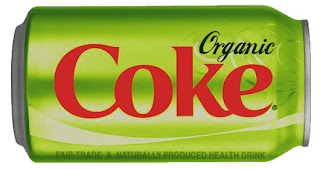Beware labels that market some foods as healthier than others. That’s my advice regarding superfoods, a term used to ascribe nutritional potency to certain foods in the same way the term ‘natural’ is used to sell anything from chickens to cereal.
A few of the foods touted as ‘super’ include blueberries and green tea, but the latest to make the grade is maple syrup. According to recent research, funded by the Federation of Quebec Maple Syrup Producers and Agriculture and Agri-Food Canada (hello!), chemists have identified 54 beneficial compounds in maple syrup that “possess anti-oxidant and anti-inflammatory properties, which have been shown to fight cancer, diabetes and bacterial illnesses.”
Initial studies also suggest that polyphenols in the syrup may help keep blood sugar levels in check, important for diabetics, by inhibiting enzymes that are involved in the conversion of carbohydrates to sugar.
Now that’s nice, as are the findings on the phytochemical makeup of maple syrup. But what we do with that information is also important. For instance, creating a label such as superfood denotes a connotation that somehow it is at the top of a nutritional pyramid. At the very least, it tells unsuspecting consumers that they’ll be healthier if they eat this food. But healthier than what?
I appreciate this news, however, because I think we can gain a few insights from it. First, I love maple syrup; so, naturally, I embrace the information because I know that unprocessed natural sugar is better than processed white sugar. And corn syrup? Forget about it–I encourage everybody to throw theirs away. Nothing, in my opinion, is worse for the health than high-fructose corn syrup (HFCS). Not lost on me is the significance of its advent into the western diet and the increases in obesity, diabetes and heart disease. Am I calling HFCS a direct cause? Nooooo….just noting the coincidental timing. If I have pancakes, it’s nothing other than maple syrup for me, no exceptions.
 But this is the only practical application I would extract from these latest findings. OK, okay…if you want to put maple syrup in your green tea, or use it as a sugar substitute–fine! Just don’t think that now syrup shots are going to be some great health practice (I know, but you’d be surprised).
But this is the only practical application I would extract from these latest findings. OK, okay…if you want to put maple syrup in your green tea, or use it as a sugar substitute–fine! Just don’t think that now syrup shots are going to be some great health practice (I know, but you’d be surprised).
Without a doubt, marketers will use these findings to their advantage; but my role is to act as a ‘snap-out-of-it’ eye opener for zombie-like behavior some people exhibit when it comes to health. Just because a company uses the term ‘natural’ to sell their over-priced product, doesn’t mean it’s any healthier for you. If it makes you somehow feel better to buy it anyhow, then be my guest: I’m just pointing out some realities, that’s all.
Now the term organic is a different story. Organic denotes a way of growing produce (sorry people, not chicken), and it is tightly regulated. A company using the term organic is subjected to fines and closure for using the term inappropriately (check this video post on just this happening in Los Angeles Farmers Markets). But natural or superfoods? Puh-leeze…buyer beware.*
Second principle: There ain’t no food more important than any other. Despite what some snake-oil salesmen may push on you promising super-health, you must eat a variety of foods to get all the nutrients necessary for good health. No yet-to-be-discovered food, juice or herb will give you better nutrition than a variety of whole natural foods. No recently or yet-to-be-discovered tropical fruit will ever be the solitary answer to cancer, gout or skunk-gum since these diseases are mutifactorial (okay, maybe not skunk-gum). Although I will admit that blueberries will probably give you more anti-oxidants than blackberries, raspberries or strawberries, they won’t give you that much more.

So again, take these findings on maple syrup with a grain of salt: It may be rich in phytonutrients–thus prompting its hailing as a superfood–but it doesn’t mean you now need to go out and purchase the latest drinks, juices and supplements that will surely follow.
*Since 1 July 2007, the marketing of products as “superfoods” is prohibited in the European Union unless accompanied by a specific medical claim supported by credible scientific research. ~ Wikipedia













